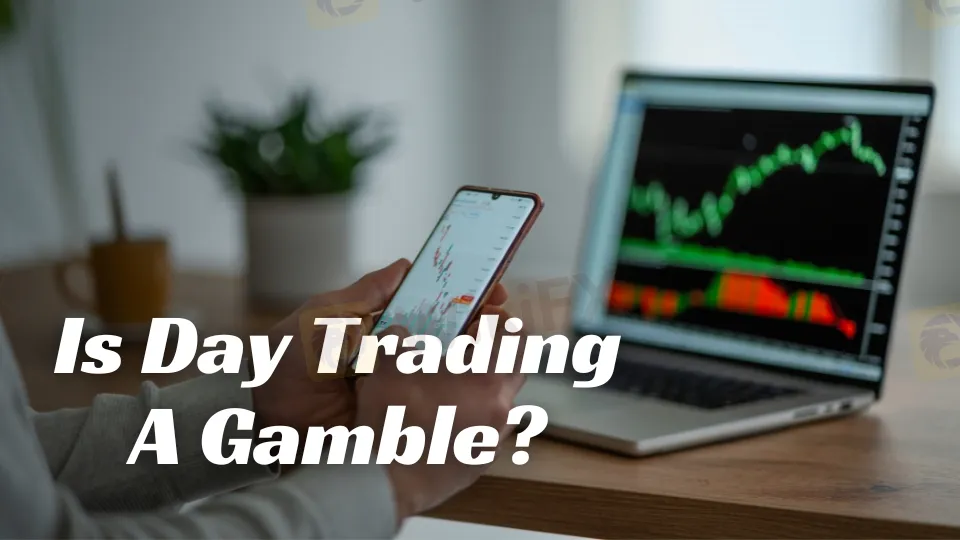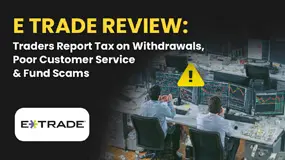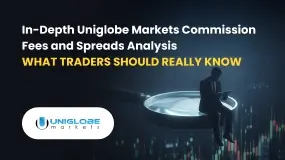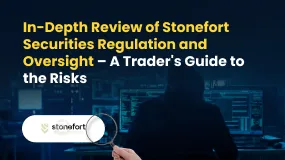简体中文
繁體中文
English
Pусский
日本語
ภาษาไทย
Tiếng Việt
Bahasa Indonesia
Español
हिन्दी
Filippiiniläinen
Français
Deutsch
Português
Türkçe
한국어
العربية
Is Day Trading a Gamble? Understanding the Key Differences
Abstract:Discover if day trading is truly a gamble. Learn key differences between trading and gambling, and explore strategies to succeed in the fast-paced trading world.

Day trading has an undeniable allure—the thrill of potential quick profits often draws newcomers, eager to make a fortune in a single day. However, for those with little knowledge of how the markets function, the rapid decision-making, and unanticipated price swings can feel overwhelming. The high-risk nature of day trading often leads to the pressing question: Is day trading a gamble? To answer that, we must first understand what day trading is, how it differs from gambling, and what strategies can be employed to turn trading into a calculated endeavor rather than a risky bet.
Day Trading: More Than Just a Roll of the Dice
Day trading is a short-term strategy where traders buy and sell various financial instruments—stocks, currencies, commodities, or futures—within the same trading day. The goal is to profit from small price movements in these assets by entering and exiting trades quickly. Unlike long-term traders, who hold positions for weeks or even years, day traders aim to avoid overnight risks by closing all trades before the market closes. This rapid pace of trading brings significant risks, particularly for those using leverage, which magnifies both potential gains and losses.
The key to successful day trading lies in using technical analysis, monitoring the market, and staying informed about current events that can influence prices. Skilled day traders rely on patterns, economic indicators, and historical data to predict market movements, setting themselves apart from gamblers who depend primarily on luck.
The Differences Between Day Trading and Gambling
At first glance, both day trading and gambling might seem like high-risk activities where fortunes can change in a heartbeat. However, the similarities end there when examined more closely:
- Skill and Strategy vs. Luck
- While gambling is largely based on chance, day trading requires a foundation of knowledge, experience, and constant learning. Day traders rely on technical analysis, studying price charts, economic trends, and news events to make informed decisions.
- Gambling, on the other hand, offers very little control. Whether playing a slot machine or betting on a roulette wheel, the outcome is mostly random. While basic strategies can help improve odds slightly, skill has little impact on the final result.
- Long-Term Thinking vs. Short-Term Gratification
- Day trading may focus on short-term gains, but successful traders operate with a long-term strategy in mind. They understand that losses are part of the process, and focus on consistent gains over weeks, months, or even years.
- In contrast, gambling often emphasizes instant results. Each bet is independent, with no forward-looking strategy or consideration for cumulative outcomes. The gamblers focus is usually on the next win, rather than a sustainable approach to risk.
- Risk Management
- Day traders implement strategies to manage risk, such as stop-loss and take-profit orders to automatically close positions at predetermined points, minimizing losses or securing gains. They also limit how much of their capital is exposed in a single trade.
- Gamblers, on the other hand, often place their entire stake on a single outcome with little control over the result. This “all-or-nothing” mentality increases the risk of losing everything, with no systematic approach to mitigating losses.

When Day Trading Becomes a Gamble
Although day trading is rooted in skill and analysis, there are instances where traders adopt a gambling mindset, increasing the risk of failure. Heres how day trading can slip into gambling territory:
- Emotionally Driven Trades: Fear, greed, and anxiety can lead traders to make impulsive decisions, reacting to short-term market fluctuations without proper analysis.
- Misuse of Leverage: Over-leveraging can quickly turn a bad trade into a catastrophic loss, much like a gambler who bets more than they can afford to lose.
- Lack of a Trading Plan: Without a clear trading strategy, traders may execute random trades, much like a gambler placing arbitrary bets without considering the odds.
How to Avoid Gambling in Day Trading
Becoming a smart day trader means approaching the market with discipline and strategy. Here are some steps you can take to ensure your day trading doesnt become a gamble:
- Build a Trading Plan
- A trading plan outlines your goals, the types of trades you‘ll make, and the risk management strategies you’ll use. By defining your rules ahead of time, youll avoid emotional, spur-of-the-moment decisions that can lead to significant losses.
- Manage Your Emotions
- Trading is as much a psychological game as it is a technical one. Maintaining emotional control is key to avoiding rash decisions driven by fear or greed. If a trade goes against you, stick to your plan rather than making impulsive moves to recover losses.
- Use Risk Management Tools
- Stop-loss orders and position sizing are essential tools for any day trader. These strategies help limit potential losses and protect your capital, ensuring that no single trade can wipe out your account.
Conclusion
Day trading is a high-risk, high-reward activity that demands skill, discipline, and continuous learning. While it shares some superficial similarities with gambling, the key difference lies in the strategic approach. Successful day traders rely on a well-thought-out plan, technical analysis, and risk management, while gamblers depend on chance. By staying informed, practicing emotional control, and sticking to a sound strategy, you can ensure that your day-trading endeavors remain grounded in skill rather than luck.
In the end, day trading is about calculated risks. With the right tools, mindset, and education, you can increase your odds of success—making it more than just a game of chance.

Disclaimer:
The views in this article only represent the author's personal views, and do not constitute investment advice on this platform. This platform does not guarantee the accuracy, completeness and timeliness of the information in the article, and will not be liable for any loss caused by the use of or reliance on the information in the article.
Read more

E TRADE Review: Traders Report Tax on Withdrawals, Poor Customer Service & Fund Scams
Has your E Trade forex trading account been charged a withholding tax fee? Did your account get blocked because of multiple deposits? Did you have to constantly call the officials to unblock your account? Failed to open a premium savings account despite submitting multiple documents? Is fund transfer too much of a hassle at E Trade? Did you find the E Trade customer support service not helpful? In this E Trade review article, we have shared certain complaints. Take a look!

mBank Exposed: Top Reasons Why Customers are Giving Thumbs Down to This Bank
Do you find mBank services too slow or unresponsive? Do you find your account getting blocked? Failing to access your account online due to several systemic glitches? Can’t perform the transactions on the mBank app? Do you also witness inappropriate stop-level trade execution by the financial services provider? You are not alone! Frustrated by these unfortunate circumstances, many of its clients have shared negative mBank reviews online. In this article, we have shared some of the reviews. Read on!

In-Depth Uniglobe Markets Commission Fees and Spreads Analysis – What Traders Should Really Know
For experienced traders, the cost of execution is a critical factor in broker selection. Low spreads, fair commissions, and transparent pricing can be the difference between a profitable and a losing strategy over the long term. This has led many to scrutinize the offerings of brokers like Uniglobe Markets, which presents a tiered account structure promising competitive conditions. However, a professional evaluation demands more than a surface-level look at marketing claims. It requires a deep, data-driven analysis of the real trading costs, set against the backdrop of the broker's operational integrity and safety. This comprehensive Uniglobe Markets commission fees and spreads analysis will deconstruct the broker's pricing model, examining its account types, typical spreads, commission policies, and potential ancillary costs. Using data primarily sourced from the global broker inquiry platform WikiFX, we will provide a clear-eyed view of the Uniglobe Markets spreads commissions prici

In-Depth Review of Stonefort Securities Regulation and Oversight – A Trader's Guide to the Risks
For experienced traders, the process of selecting a new broker transcends a simple comparison of spreads and leverage. It is a meticulous due diligence exercise where the integrity of the broker's regulatory framework is paramount. Stonefort Securities, a relatively new entrant in the crowded brokerage space, presents a complex and often contradictory profile. On one hand, it boasts a modern MT5 platform and a stream of positive user testimonials. On the other hand, it is shadowed by severe regulatory warnings that question the very foundation of its operations. This in-depth review focuses on the core issue for any long-term trader: Stonefort Securities regulation and oversight. We will dissect the broker's corporate structure, scrutinize its licensing claims, and analyze what the data implies for trader protection and fund security. For traders evaluating whether Stonefort Securities is a trustworthy partner, understanding these details is not just important—it is essential.
WikiFX Broker
Latest News
In-Depth Uniglobe Markets Commission Fees and Spreads Analysis – What Traders Should Really Know
WikiFX's New Evaluation of ATM Capital LTD: Does its License Protect the Arab Investor?
Is Axi Legit? A Data-Driven Analysis of Its Regulatory Standing and Trader Feedback
How a Fake Moomoo Ad Led to the “New Dream Voyage 5” Scam
FXPesa Review: Are Traders Facing High Slippage, Fund Losses & Withdrawal Denials?
Trive Investigation: High Score, Hidden Risk - The Profit Paradox
CMC Markets Australia Revenue Surges 34%, But High-Net-Worth Clients Face Tax Phishing Threat
Young Singaporean Trader Grew USD 52 into a USD 107,700 Portfolio
Is GGCC Legit? A Data-Driven Analysis for Experienced Traders
E TRADE Review: Traders Report Tax on Withdrawals, Poor Customer Service & Fund Scams
Currency Calculator



